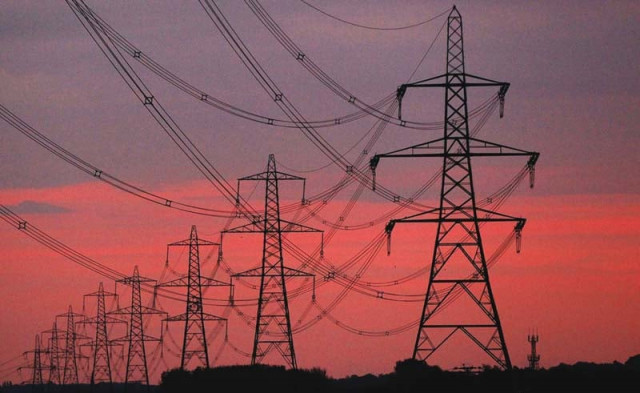Energy prices: Tariff stays flat despite cut in production cost
Govt to save Rs100b in subsidies, prevents prices from falling by 17%

PHOTO: REUTERS
In a bid to reduce its subsidy bill by Rs100 billion over the next fiscal year, the government on Thursday approved three separate surcharges to be levied on electricity to keep tariffs at their current level, despite the fact that power generation costs have declined by 17% due to lower global oil prices.
The decision was taken by the Economic Coordination Committee (ECC) of the Cabinet, which approved the Water and Power Ministry’s proposal. The three surcharges, collectively equal to Rs1.97 per kilowatt-hour, will keep prices at their current level. Among the surcharges is a Rs0.95 per unit electricity equalisation surcharge, a Rs0.59 per unit tariff rationalisation surcharge, and a Rs0.43 per unit debt servicing surcharge.

As a result, the average tariff charged to customers of the state-owned power distribution companies will stay at Rs11.95 per kWh instead of coming down by 17% to an average of Rs9.95 per unit. According to the National Electric Power Regulatory Authority (Nepra), the weighted average cost of power generation in the country, referred to as the ‘determined tariff’, was Rs13.83 per kWh for fiscal year 2015, a number that is expected to come down to Rs12.50 per unit in fiscal 2016.
Even after leaving tariffs unchanged, the government will still be subsidising electricity by an average of Rs0.53 per unit, substantially lower than previous years, but still expected to cost the government Rs118 billion, or 0.4% of the total size of the economy, said one Finance Ministry official. For the outgoing year, the government had allocated Rs221 billion for electricity subsidies.
In a bid to make these surcharges more politically palatable, the government said that they are not new and emphasized that rates were not going up. “These are old and currently levied (surcharges) and that these will be part of new tariff determination exercise”, said Finance Minister Ishaq Dar.
“No new surcharge will be imposed on the electricity consumers and the average national tariff will be maintained at current level,” according to a handout issued by the Water and Power Ministry. It added these tariffs are closer to the tariffs determined by Nepra.
The government maintained that it will continue to apply a uniform tariff across the country (except Karachi) and subsidise household consumers who use up to 300 units, agricultural consumers, and continue to pass on the full cost of service as determined by Nepra.
The ECC also decided to pass on the benefit of all negative adjustments on account of monthly fuel price adjustments to all consumers except those who have subsidised and special electricity tariff. This will ensure that the benefits of cost reduction will be passed on to those consumers who are paying a higher cost of electricity, said the Finance Ministry.
Fertiliser imports
The ECC decided to allow the import of an additional 150,000 tons of urea fertiliser for the winter growing season. It has already allowed the import of 100,000 tons of urea earlier this year. The additional import was allowed to bridge the growing demand and supply gap and build up sufficient reserve stocks, said the Finance Ministry.
Ramazan package
The Industries Ministry requested an increase in the subsidy on sugar during the month of Ramazan for sugar sold at the Utility Stores Corporation, a state-owned nationwide retail chain. The ECC approved the increased subsidy on sugar from Rs3 per kilogram to Rs5 per kg. In a nation that suffers from widespread Type 2 diabetes, this step would add around another Rs100 million to the sugar subsidy.
Renewable energy projects
The ECC also considered the proposal submitted by the Water and Power Ministry to empower the provinces in setting up renewable energy projects.
Published in The Express Tribune, May 22nd, 2015.



















COMMENTS
Comments are moderated and generally will be posted if they are on-topic and not abusive.
For more information, please see our Comments FAQ